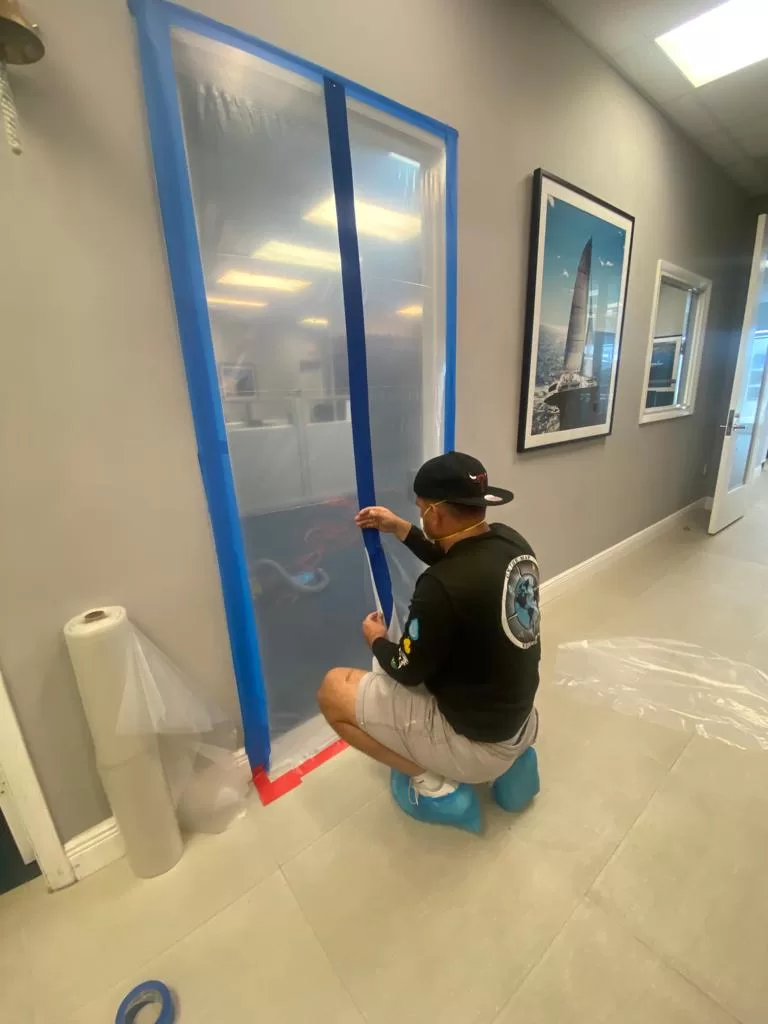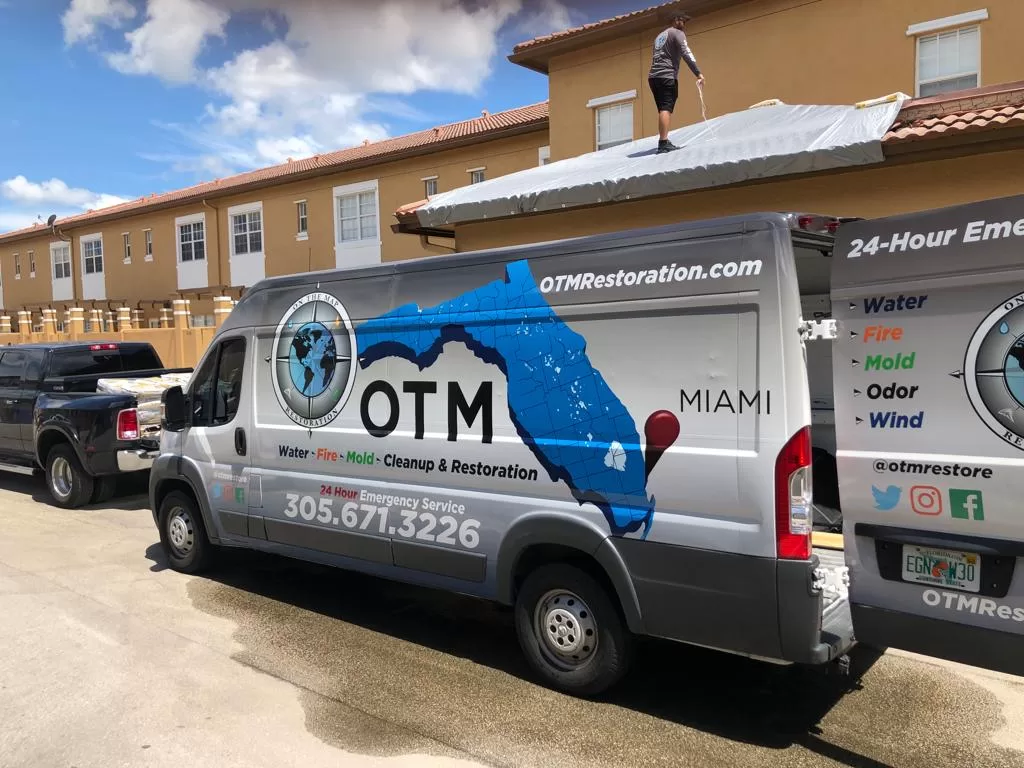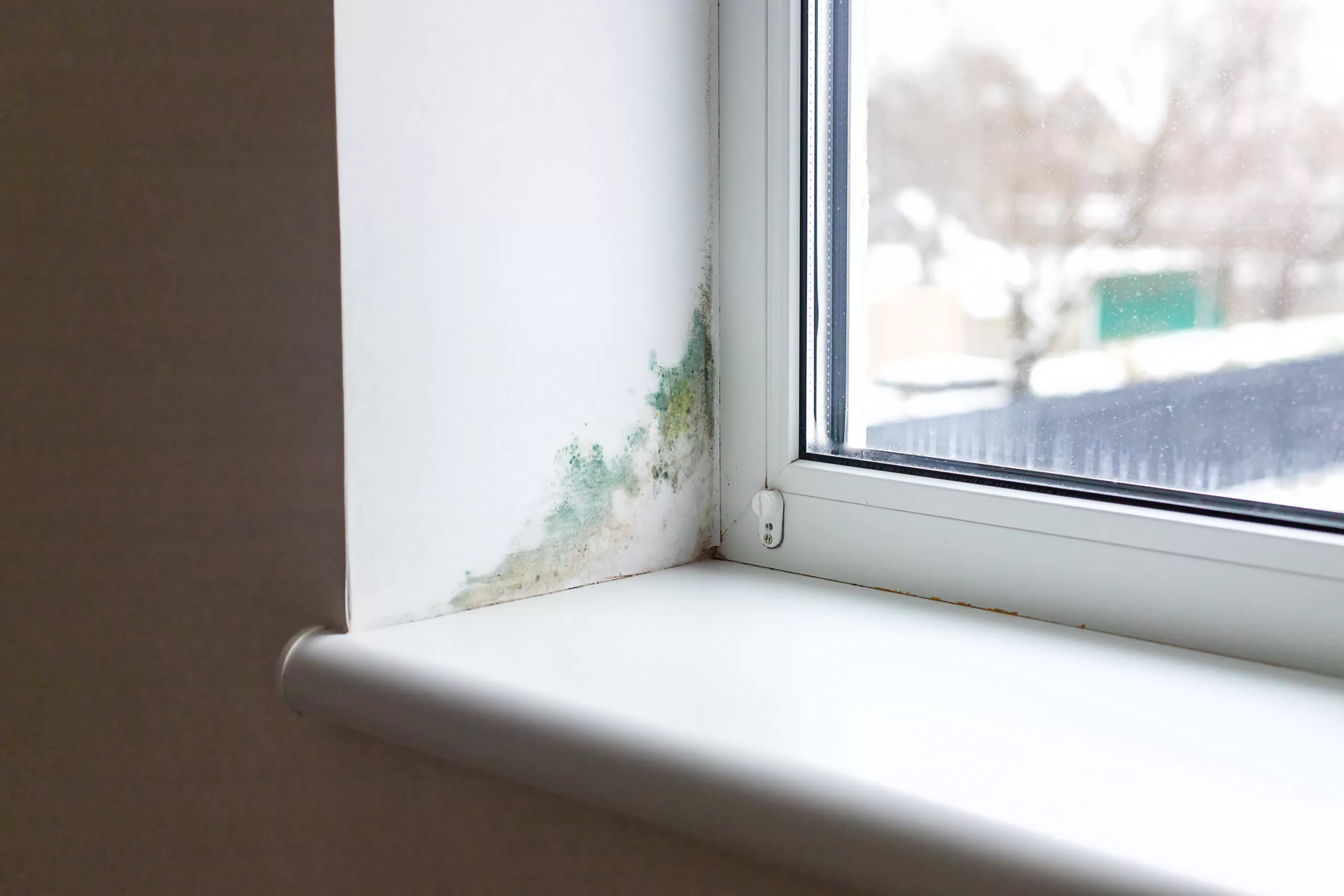Mold damage is a serious issue, and it’s essential to understand the risks involved. OTM Restoration can help you deal with your mold before remediation. In this post, we’ll go over some of the most common questions people have when dealing with mold damage issues and how you can resolve them.
What are a Few Signs of Mold?
Mold can grow on virtually any surface, including carpets and fabrics. It can also grow in dark and damp places in your home, such as the basement or crawlspace. Mold is also common in bathrooms, where it loves to grow on shower curtains and grout tiles.
If you have a musty smell coming from your ceiling or walls, this could be an indication that mold has started to form in your attic or basement. Mold spores are microscopic and float through the air inside your home until they land on something they can begin growing on—and land on something that holds moisture well (like wood), they will start to multiply!
How Does Mold Grow in the First Place?
Mold grows when it has access to moisture and organic material. It can grow on walls, ceilings, furniture, and nearly every other surface in your home. Mold spores are everywhere—they’re in our homes’ air supply and will arrive with the delivery of new construction materials like drywall or carpeting.
When water damage occurs—from a leaky roof or broken pipe—mold spores land on surfaces where they find moisture. The moisture provides food for the spores to begin growing into colonies of mold that release dangerous mycotoxins.
How Does Mold Affect Your Health?
Mold can cause health problems. If you have any of the following symptoms, you may be experiencing mold-related illness:
- Allergic reactions (e.g., itchy eyes, nose, and throat)
- Respiratory problems (e.g., asthma)
- Skin infections (e.g., dermatitis)
- Eye infections (e.g., conjunctivitis)
In addition to these possible effects, some people may experience neurological disorders such as memory loss and mood swings when exposed to mold spores for prolonged periods.
What Can You Do to Keep Mold Away?
The best way to deal with mold is to prevent it. To keep mold at bay, you should immediately clean up any spills or leaks and ensure no excessive humidity levels in your home. In addition, make sure that you maintain good ventilation by keeping windows open when possible and not keeping your house sealed up too tightly. If you have a problem with excess moisture, consider using a dehumidifier and making other changes in your lifestyle (like drying out laundry and dishes properly).
What Should You Do if Dealing with Mold in Your House?
If you discover a mold problem in your house, the first step is to call a professional. If you can’t afford an experienced professional, contact your local government and ask for advice on how to deal with it.
If you are a renter and have discovered mold in your home, contact your landlord directly and explain the situation to them. Then work together to resolve the issue and stay manageable as time passes.
If you are a homeowner and have encountered this problem in one of your properties, contact your insurance company as soon as possible so that they may work towards remediation of the damage caused by mold growth inside your home.
 Mold Damage: Dealing with Mold? OTM Restoration preparing a home before remediation in Cape Coral.
Mold Damage: Dealing with Mold? OTM Restoration preparing a home before remediation in Cape Coral.
How Can a Mold Remediation Company Help?
Calling a professional is good if you suspect your home has mold exposure. Mold remediation companies can help you identify the source of the mold and remove it from your home. They also help homeowners clean up the affected area and prevent further damage from occurring.
If hiring a company to do this work for you, ensure they are certified by one of the major certification organizations in your state. These may include the American Council for Accredited Certification (ACAC), the International Association of Certified Home Inspectors (InterNACHI), or the National Organization of Remediators and Microbial Inspectors (NORMI).
Know What to Look For and How to Handle It
Mold can be a big problem, and it’s important to know what to look for and how to handle it. It can harm your health and damage your home. Mold grows in damp or musty places, so don’t take chances if you notice mold on your walls or ceiling. Get it checked out by a professional before deciding whether or not to clean up the mold yourself.
If you’re using an air purifier in your house because there is mold growing somewhere, this will only worsen the problem by circulating spores throughout the house instead of just removing them from their source (which would be helpful).
Mold Remediation is a Big Job!
Consider hiring someone who will help clean up all traces of water damage before turning their attention toward removing any visible signs that might indicate there may be more underneath surfaces like linoleum flooring tiles or even wallpaper. It’s essential that you complete a Post-Remediation Verification and receive a Microbial Completion and Clearance Certificate.
 Mold Damage: Dealing with Mold? OTM Restoration has years of experience working in Florida and has been working with people after Hurricane Ian.
Mold Damage: Dealing with Mold? OTM Restoration has years of experience working in Florida and has been working with people after Hurricane Ian.
OTM Restoration Can Improve Your Indoor Air Quality and Mold Problem
Mold damage is a common problem you may encounter in your home. It can cause many factors, such as high humidity levels or poor ventilation, but water damage is the most common cause of mold growth.
The first step is determining where the mold came from and inspecting the damage and air quality. Then you will need to ensure that there are no more sources of moisture, like leaking pipes or roofs, that need to be appropriately maintained. Once addressed, contact an experienced restoration company to help clean up after the mold removal so everything looks as good as new!
With all the information above, you should understand the most frequently asked questions about dealing with mold damage issues. If you or someone you know has been affected by mold, please get in touch with us today so we can help.
OTM Restoration experts are on call and are available 24/7 to provide the sensitivity and professionalism required to handle residential and commercial mold issues.
For a free consultation and quote, contact us at 800-416-5986 today!


Recent Comments